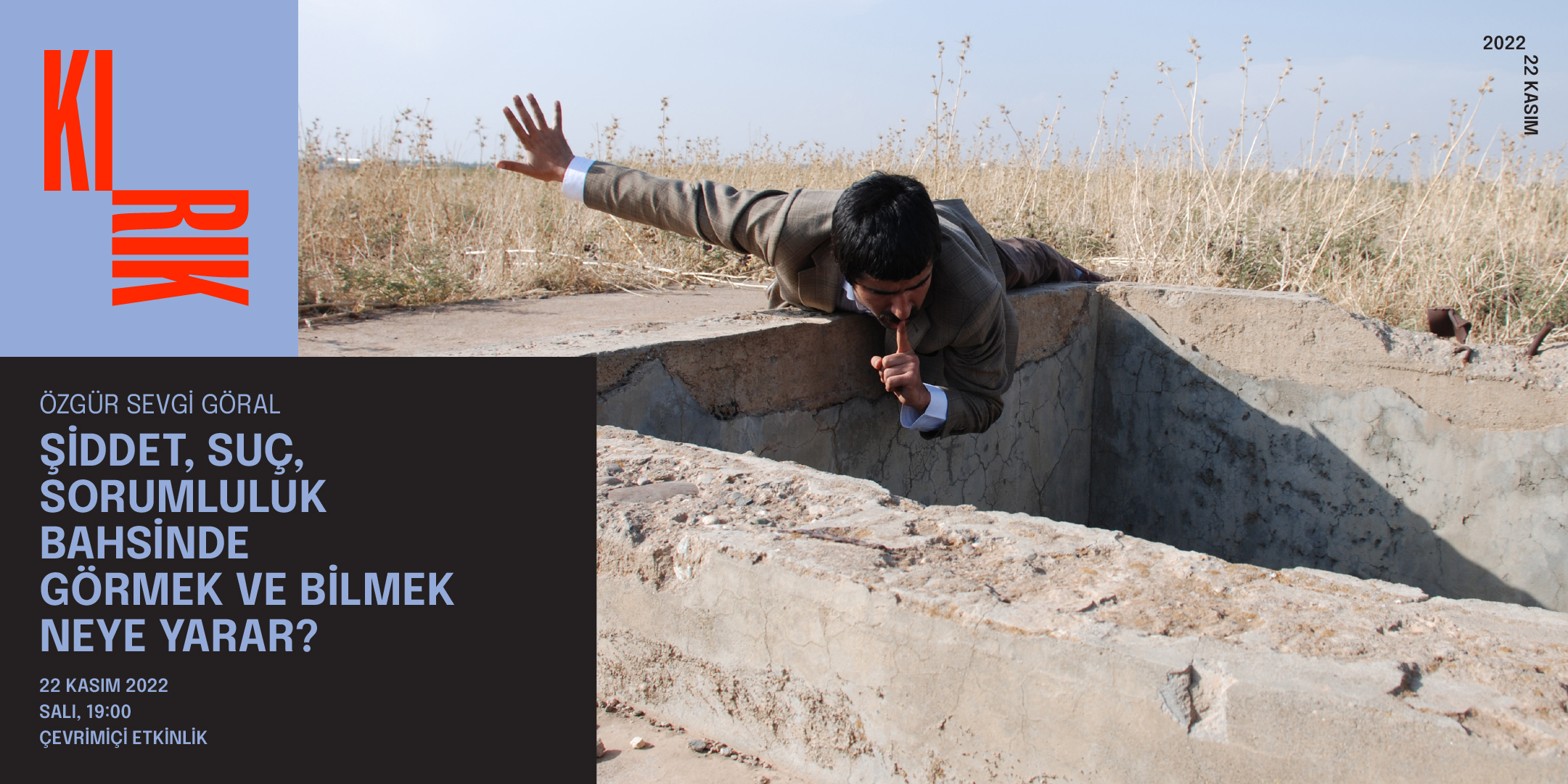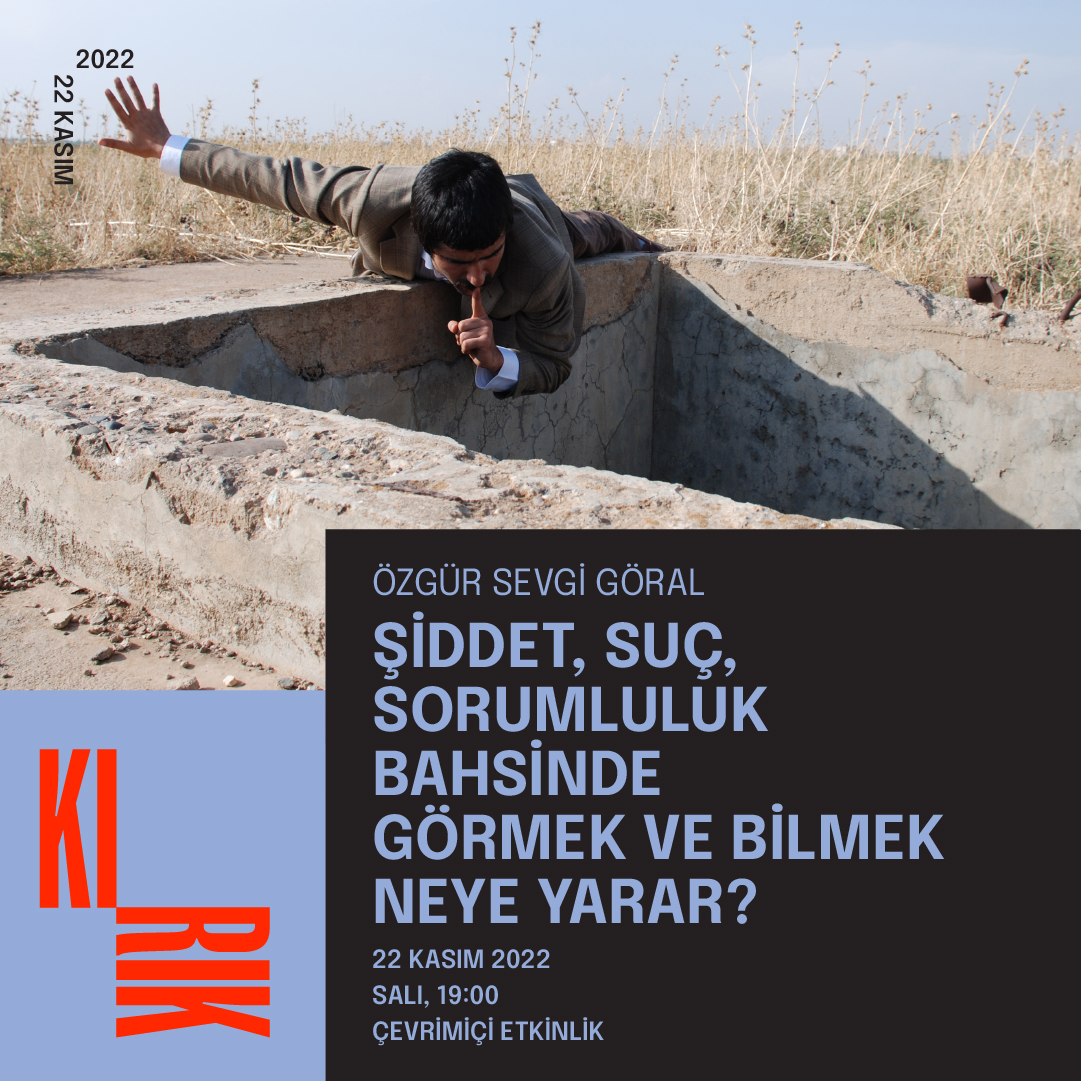

WHAT GOOD IS SEEING AND KNOWING WHEN IT COMES TO VIOLENCE, CRIME AND RESPONSIBILITY?
ÖZGÜR SEVGİ GÖRAL
22 NOVEMBER 2022, Tuesday 19:00
- Online Event
Forms of state violence being known and seen by broad sections of the public and the subsequent assumption of responsibility is an issue that social scientists have been thinking about for a very long time, especially in the post-Holocaust period. Where broad sections of the public are to be situated in the face of these occasions of violence, how they are to be referred to, which of the positions of perpetrator, collaborator and neutral observer they will have recognized to be in, and whether these positions are satisfactory have been hotly debated for a long time. It is evident that this debate is closely related to the trajectory of political struggles, the impact of visual arts, especially of cinema, and the different definitions of the acts of seeing and knowing. In this talk, Özgür Sevgi Göral, aims to discuss what kind of relation cinema and different visual materials have with forms of state violence that constitute a “pact of public secrets” in Turkey and what sort of consequences they lead to.
Özgür Sevgi Göral is a historian, affiliated researcher in Institut National des Langues et Civilisations Orientales (INALCO) in Paris. Among the founders of Hafıza Merkezi (Truth Justice Memory Center). She has taught courses at Istanbul Technical University, Yıldız Technical University, Sabancı University, Mimar Sinan University and Boğaziçi University in Turkey and at Sciences PO and INALCO in France. She has written her dissertation titled “Enforced Disappearance and Forced Migration in the Context of Kurdish Conflict: Loss, Mourning and Politics at the Margin” (2017) at the Ecole des Hautes Etudes en Sciences Sociales (EHESS). She has written her master’s thesis titled “The Child Question and Juvenile Delinquency During the Early Republican Era” at The Ataturk Institute for Modern Turkish History at Boğaziçi University. She has published various studies on state violence, enforced disappearances, law, reckoning with the past and political movements.
Image: Şener Özmen, Shut-Up, 2009
This talk is part of a film program featuring films about crime, genocide and accountability.
KIRIK’s 2022 programs are supported by SAHA as part of the Sustainability Fund 2021-2022.